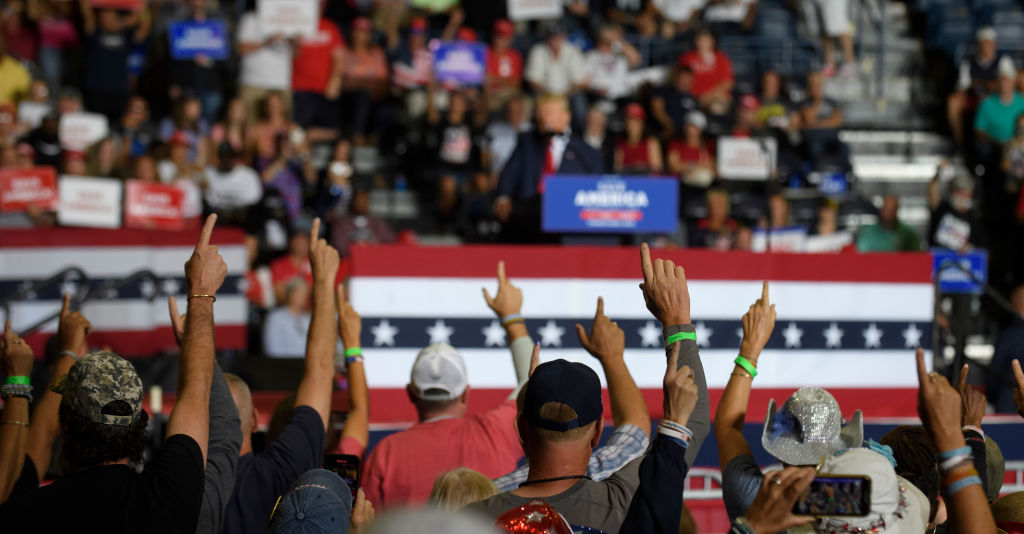
This article is part of The D.C. Brief, TIME’s politics newsletter. Sign up here to get stories like this sent to your inbox.
History is written into arbitrary eras. Some are informed in large parts by cultural cues, pegged to specific leaders, others to seismic shifts. We marked the end of one such era with the burial of Queen Elizabeth II just this week. Other chapter headings frame history through social resets, as was the case of the Russian revolutions of 1917, the tumult of 1968, or even the arrival in 2008 of an allegedly post-racial United States with the Age of Obama. All were admittedly problematic bookends, but our rudimentary understanding of history as a series of events strung together in sequential order brings us to embrace these signposts with too few objections.
Well, it’s not a stretch to say 2020 could well be used as a launching point for the next era of scholars in the field of contemporary history: a reset ushered in with a devastating pandemic, an overdue self-examination of race, a presidential campaign that cleaved the country in half, and the acceleration of disinformation and conspiracy theories that led to a literal coup attempt on Jan. 6, an indelible coda just days after 2020’s end. The year was as consequential as any since 2001, and many celebrated its conclusion with a little more relief than usual. Yet we cannot escape it. The record keeps skipping. The headlines keep recycling. It’s as if Shirley Bassey’s earworm is on repeat: “It’s all just a little bit of history repeating.”
Maybe there is no moving on from 2020, a year that saw workers and employers redefine their relationships, communities dramatically redrawn amid a massive internal migration, and neighbors confronting each other about decades of inequalities. It also was the year that half of the country found itself denying the numerical results of a presidential election, a conspiracy theory whose support is now on the entrance exam for joining the modern Republican Party, and a cohort may end up in charge of our elections heading into the 2024 contests.
In a way, that tragic loop has put Joe Biden’s presidency on ice, or at least the perceptions of what it is and isn’t accomplishing. Try as we might, Washington seems hellbent on repeating the news cycles of 2020 ad nauseum. Debates about the pandemic and its end mixed with never-ending sparring over the Jan. 6 insurrection all haunt D.C.—and Biden’s legacy makers. Donald Trump remains splashed across front pages and homepages alike as he faces mounting legal problems. Trump wannabes are tripping over themselves to one-up their mentor and prove they can be the most cruel to migrants seeking asylum at the southern border. And the score at Trump’s campaign-style rallies prod supporters to lift their arms in a display of loyalty as a soundtrack that echoes conspiracy-theory QAnon’s theme song blares.
Let’s unpack that final note. While Qanon was birthed in the bowels of the Internet in 2017, it was in 2020 that Trump began playing footsie with its followers in earnest. At his weekend rally in Youngstown, Ohio, the ex-President appeared to drop all pretense and fully embraced a movement that believes that he is waging a private war against child-trafficking satanic liberals, will return to power any day now, and will exact revenge by executing his enemies during a live broadcast. A week after he promoted an image of himself wearing a Q pin on his flailing social media site Truth Social, he spoke at his rally over a tune that was indistinguishable from the QAnon theme song. His fans responded by raising their index fingers in a nod to the QAnon slogan of “Where We Go One, We Go All.” It was as open of an embrace as the former President has made for QAnon, which the FBI has warned could turn into a violent movement. It was, to be blunt, chilling.
So, where does this perma-2020 stasis leave politics? It’s not clear. The loop seems unbreakable for the moment, when stories as impactful as Biden’s victories on infrastructure and climate change, the Covid-19 pandemic’s loosening hold on the country, and Ukraine’s steely strength against Russia’s invasion should be bigger parts of the national conversation. The narrative, however, seems stuck on 2020’s terms. Sometimes, that’s just a function of history’s controlling powers, at least until those in charge of writing the commonly accepted histories prove unworthy of that power. After all, racism most certainly did not end in 2008 with the election of Obama, no matter how ferociously some pundits argued at the time. The fever of 2020 will break; it’s just up to Americans to decide if that happens soon—or if they’ll be humming a QAnon jingle as they march back to the 2020 starting line once more.
Make sense of what matters in Washington. Sign up for the D.C. Brief newsletter.
More Must-Reads From TIME
- The 100 Most Influential People of 2024
- The Revolution of Yulia Navalnaya
- 6 Compliments That Land Every Time
- What's the Deal With the Bitcoin Halving?
- If You're Dating Right Now , You're Brave: Column
- The AI That Could Heal a Divided Internet
- Fallout Is a Brilliant Model for the Future of Video Game Adaptations
- Want Weekly Recs on What to Watch, Read, and More? Sign Up for Worth Your Time
Write to Philip Elliott at philip.elliott@time.com